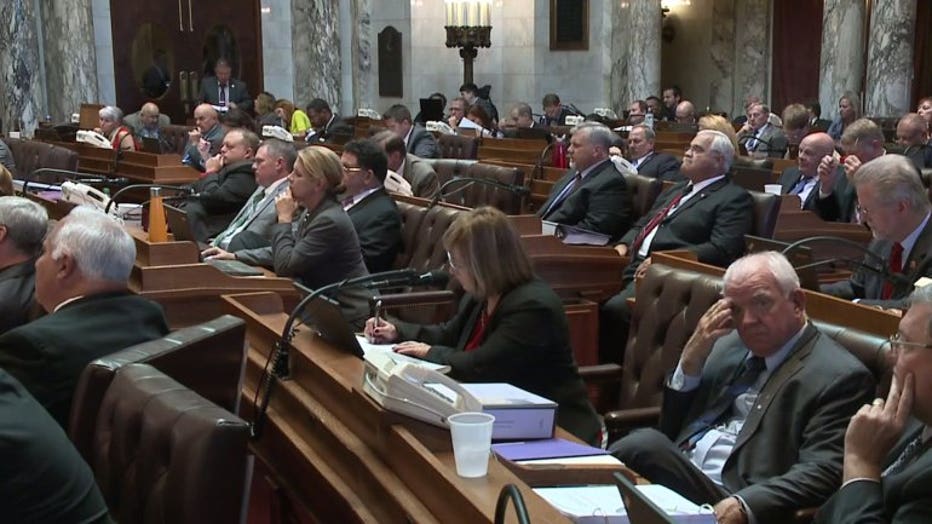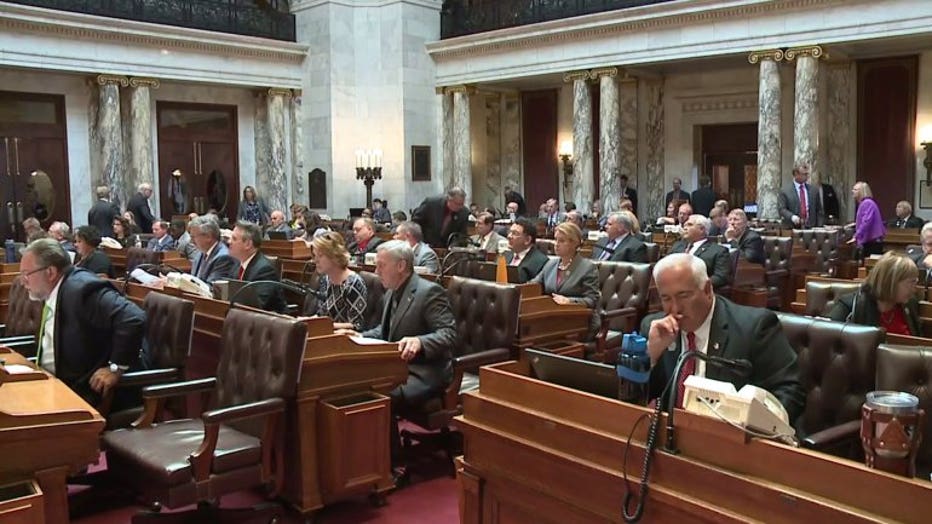11 hours of debate: Wisconsin Assembly passes budget, Senate not on board
MADISON — Assembly Republicans passed the state budget after a 10-week delay Wednesday, sending the $76 billion spending plan to a Senate chamber paralyzed by GOP infighting.
The Assembly passed the bill 57-39 after 11 hours of debate. The Senate must pass an identical document before it can go to Gov. Scott Walker's desk.
Senate Majority Leader Scott Fitzgerald has said he wants to vote on the budget on Friday but doesn't have the votes. At least three Republican senators are demanding major 11th-hour changes to the document, including prohibiting the University of Wisconsin System from spending on diversity training, dramatically raising the income eligibility limit for the statewide school voucher program and repealing the state prevailing wage within months.

The Senate impasse illustrates how Republicans have struggled to pass a budget even though they control both legislative houses and the governor's office. The budget was due July 1 but Republicans spent the summer quarreling among themselves over how to pay for roads before finally arriving at a plan to delay projects, borrow $400 million more and increase registration fees for hybrid and electric vehicles by $100.
Now, Sens. Steve Nass, Duey Stroebel and Chris Kapenga are demanding a number of major last-minute changes. The GOP controls the Senate 20-13 but Fitzgerald needs 17 votes to pass anything and two other senators, Rob Cowles and Dave Craig, are withholding support for the spending plan as well.
Nass, Stroebel and Kapenga wrote a memo demanding amendments that would prohibit UW from spending $4 million on diversity training for students and faculty; raise the income eligibility for the statewide voucher program to 300 percent of the federal poverty level; repealing the state prevailing wage on Jan. 1; and forbid municipalities from imposing any wheel tax not approved through a referendum.

The voucher program provides subsidizes private school tuition. Right now, the most a family can earn and still qualify is 185 percent of the poverty level, or nearly $45,000 for a family of four. The budget raises that to 220 percent of the poverty level, or 220 percent. Prevailing wage requirements, meanwhile, lay out a minimum wage for workers on state construction projects. The budget would repeal it on Sept. 1, 2018.
Walker told reporters earlier Wednesday he would sign off on last-minute budget changes speeding up repeal of the prevailing wage. Fitzgerald emerged from a closed-door meeting with senators on Wednesday afternoon saying he still doesn't have 17 votes but hoped to get there by Friday.
Assembly Speaker Robin Vos pushed ahead with a floor vote on the budget anyway, saying he wouldn't be "held hostage" by Senate Republicans. Assembly Republicans made minor technical changes to the budget but didn't address any of the Senate Republican demands.
"We are not going to allow individual senators to rewrite the budget," Vos said.
The Assembly floor debate began at noon and dragged on until 11 p.m. Democrats focused their criticism on tax cuts benefiting the wealthy rather than reducing taxes for the working poor, saying Republicans had "rigged" the budget against the middle class. They also highlighted Republicans' failure to come up with a long-term funding plan for roads and jabbed the GOP for failing to line up votes in the Senate.
"We don't even know if the Senate can pass this budget, it's so bad," Democratic Minority Leader Peter Barca said.
Republican Rep. John Nygren, co-chair of the Legislature's budget-writing committee, acknowledged the budget has taken longer than usual but funds the state's priorities.
"This budget helps thousands of families throughout our state," Nygren said on the Assembly floor.
Vos said he was disappointed with the road funding — he had pushed for raising more revenue by raising the gas tax or raising vehicle registration fees rather than borrowing more money — but pledged that the Assembly would not return to the floor next week to adopt any Senate changes.
"All of us can walk away saying if the Legislature does nothing else this session we have accomplished our most important task," Vos said.
Walker, who is gearing up to run for a third term next year, also defended the proposed budget plan, saying it fulfills his goals of increasing funding for K-12 schools without increasing property taxes.
Republican Reps. Scott Allen, Janel Brandtjen, Bob Gannon, Adam Jarchow and Joe Sanfelippo voted against the budget.

